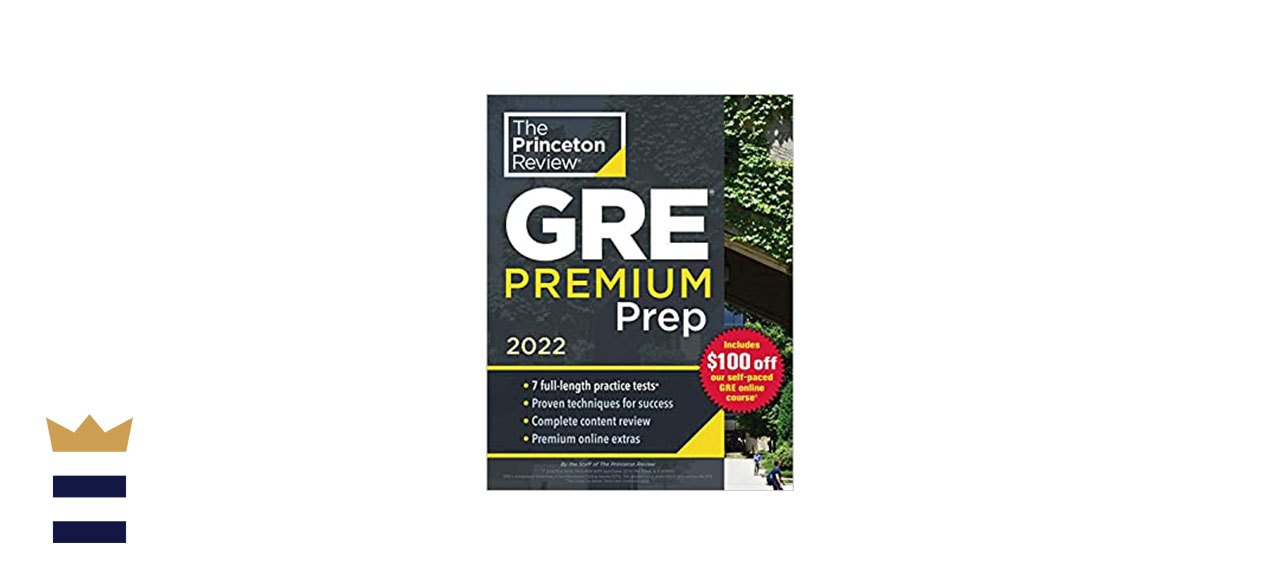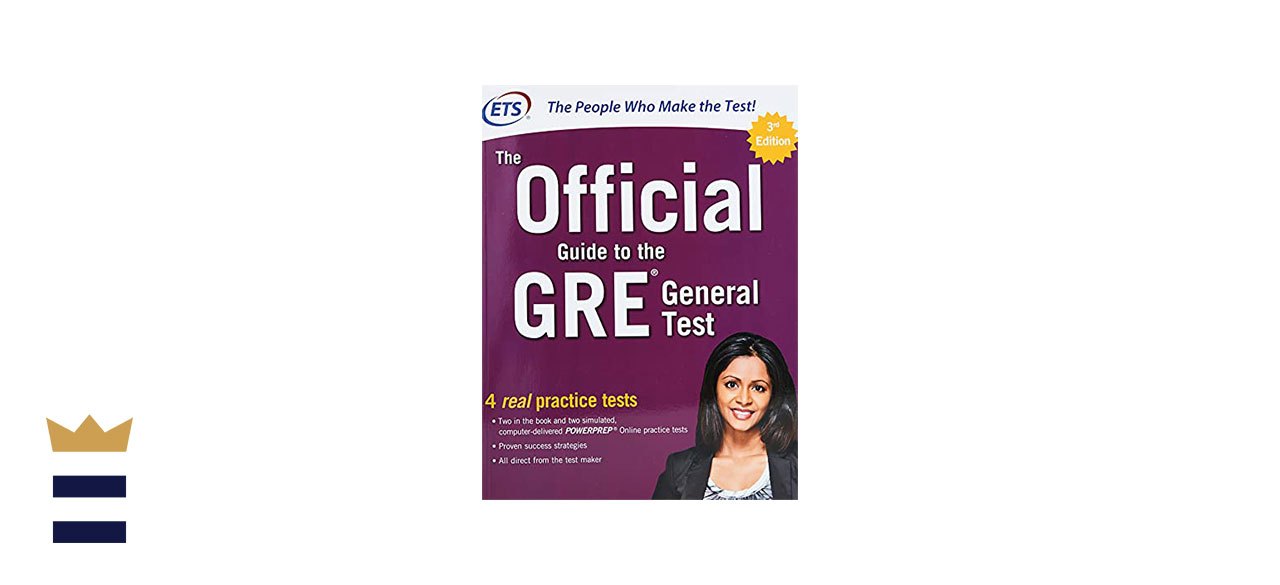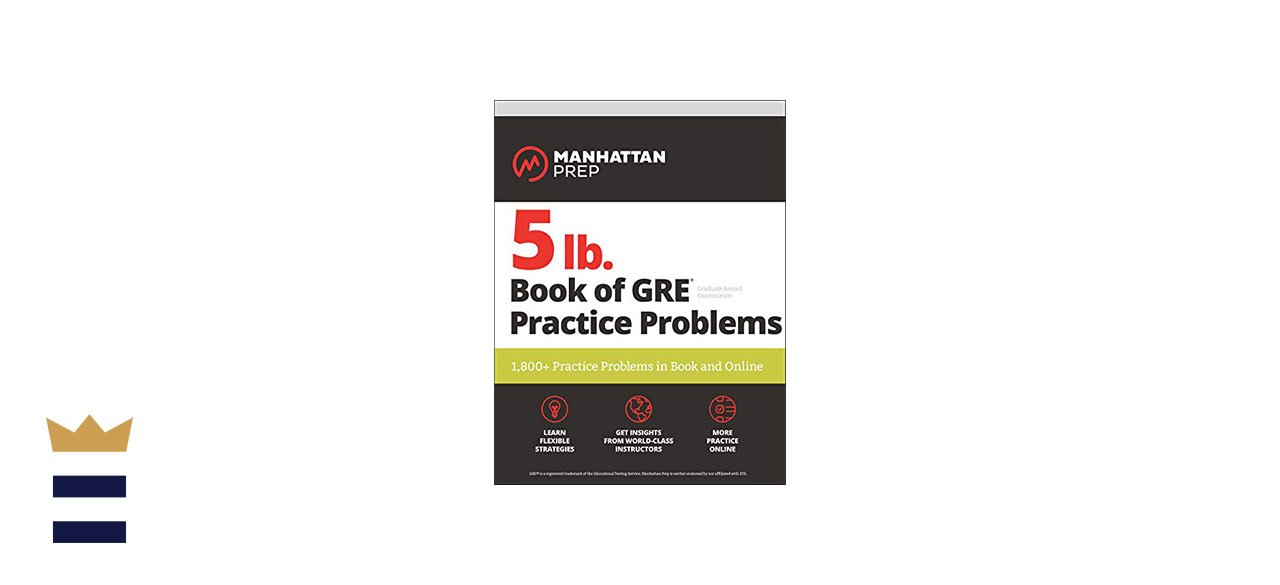GRE test prep
If you’ve set yourself some lofty academic goals, it can feel as if education never ends. After high school and undergraduate education, more and more students are turning toward postgraduate education. Taking this step usually means undergoing further admissions tests and other requirements.
The GRE is one such test, and its importance varies depending on the institution and program to which you’re applying. But regardless of the weight you or your prospective institution places on the GRE, it’s important to do some proper preparation to get ready for the test.
What is the GRE?
The GRE stands for “Graduate Record Examinations.” It is run by the Educational Testing Service (ETS) as a standardized way for graduate schools throughout the USA and Canada to assess the academic capabilities of graduate school applicants. When you submit records such as your undergraduate transcript and academic references, many programs will also require your GRE test results to assess your application.
It is used to assess academic capability across areas such as verbal and quantitative reasoning, and critical and analytical thinking and writing. Rather than having to put pen to paper, these days, the test is taken online so students can sit the GRE from their own laptop.
Sections of the GRE
GRE verbal section
The verbal section of the GRE aims to assess areas such as your vocabulary, critical thinking and reading comprehension. You’ll get 20 questions and 30 minutes to complete them. Within the verbal section, you will be required to perform tasks such as completing sentences, selecting equivalents and answering reading comprehension questions.
GRE quantitative section
In the quantitative section, you’ll be tested on your knowledge and application of various mathematical concepts and your reasoning skills. The type of material covered in this section of the GRE is typically high school-level math. It consists of 20 questions to be answered in 35 minutes. The questions include quantitative comparison, problem solving and interpretation of data.
GRE analytical writing section
This is the essay section of the GRE. In this section, you’ll have to complete two different essays. The first is called an issue task and you’ll be given a topic with 30 minutes to complete your essay. For the second part, known as the argument task, you’ll be presented with an opinion and will have 30 minutes to write an essay that critiques the argument presented.
What’s a “good” GRE score?
The GRE is scored as follows:
- 130-170 in verbal reasoning
- 130-170 in quantitative reasoning
- 0-6 in analytical writing
According to the ETS, the average score is currently 150 for verbal reasoning and 152 for quantitative reasoning. However, what constitutes a “good” score varies depending on the program you’re applying to as they may enforce their own minimums. Some will also only require a minimum score for one section of the test if it’s far more relevant to the program.
Benefits of taking the GRE
Admission to graduate education
The GRE is often a requirement for entry into many graduate programs in the U.S. and Canada for programs such as MBA or JD courses. However, the weight of your GRE results in relation to your overall application depends entirely on the institution and the program itself.
Scholarship consideration
Many scholarship programs also use GRE results during their assessment of students who have applied for their scholarship programs. Again, this can vary widely from one institution or scholarship program to the next.
Understanding your strengths
If you’re still undecided about a course of study for your graduate education, the GRE can provide excellent insight into your true academic strengths. Not only can this help you decide on a course of study, but you’ll also know which areas to focus on and which skills to strengthen going forward.
Steps to preparing for the GRE
Like any other type of standardized test, the best way to prepare for the GRE is to practice as much as possible. But there are a few other steps you can take to make your prep as effective as possible.
Decide where to focus your attention
If you’re applying for a specific program, take the time to understand whether they take your GRE score in its entirety or if they only focus on one section when assessing your application. This can help you focus your attention on boosting your score in a particular area of the test.
Set a target score
Take the time to understand the percentile scores and, after a couple of practice tests, what you can aim for realistically. Having a target score in mind helps to keep you motivated during your test prep.
Access the published essay topic list
The ETS has published a lot of helpful resources to enable students to properly prepare for the exam. For example, the topic given in the issue task section is always pulled from a list of prepublished topics. You can access the list of topics on the ETS website and use them to inform your preparation for this section of the test.
Download some test prep software
ETS has also produced special software that students can use to prepare for the test known as PowerPrep. The software uses actual questions that were previously used in the exam and provides lots of practice questions and other material.
Pick up some practice books
You can also buy specific GRE practice books. Some have been published by highly respected academic institutions such as the Princeton Review GRE Premium Prep along with books published by the ETS themselves.
Sold by Amazon
What you need to buy for GRE test prep
The Official Guide to the GRE General
Written by the ETS themselves, this book outlines exactly what to expect from the test, how the scores work and hundreds of practice questions and references materials to help you prepare.
Sold by Amazon
5 lb. Book of GRE Practice Problems
If you find yourself running out of practice questions and want something fresh, this book contains over 1,800 practice problems specifically for the GRE.
Sold by Amazon
Sign up here to receive the BestReviews weekly newsletter for useful advice on new products and noteworthy deals.
Lauren Farrell writes for BestReviews. BestReviews has helped millions of consumers simplify their purchasing decisions, saving them time and money.
Copyright 2021 BestReviews, a Nexstar company. All rights reserved.






